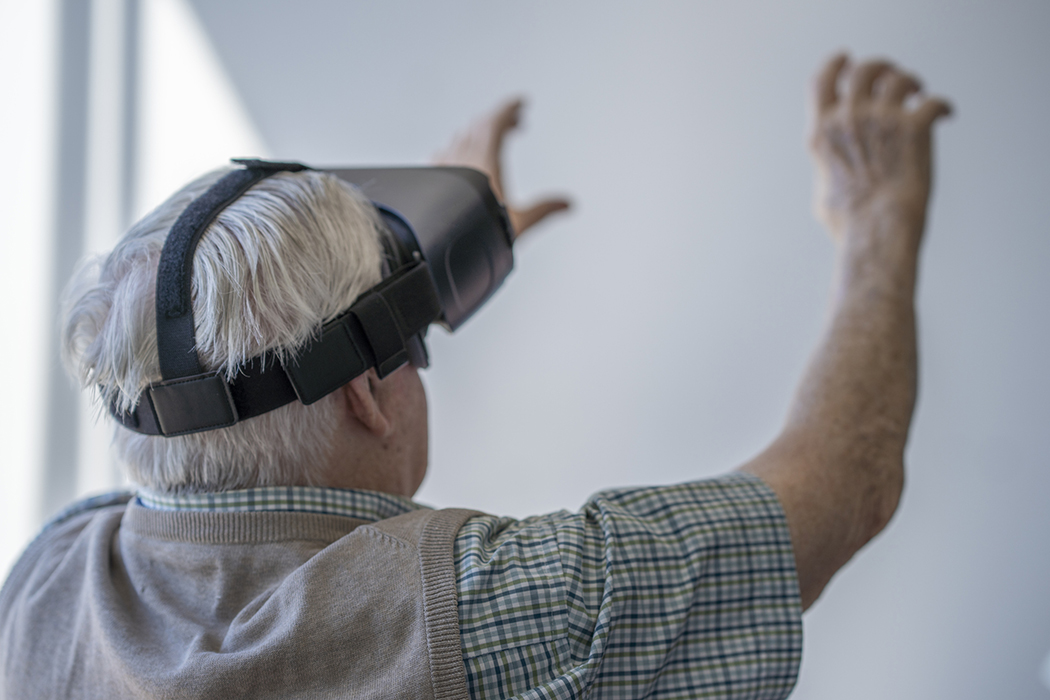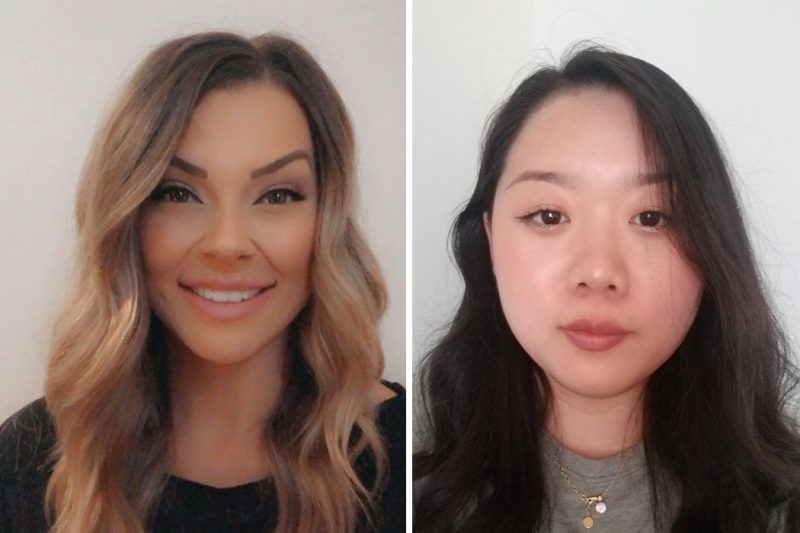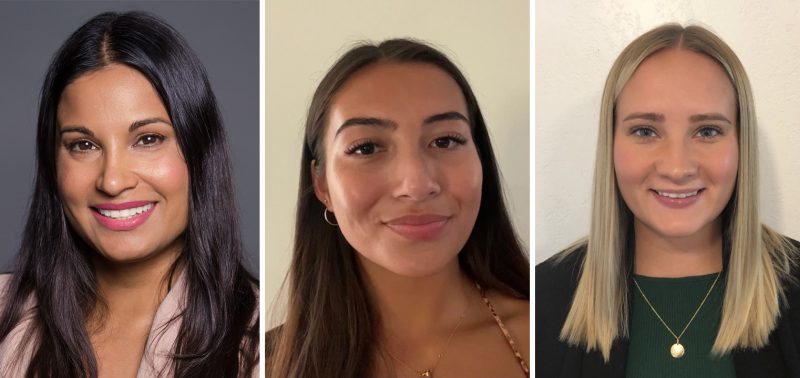
One project at the 2022 Critical Inquiry Research Project Symposium looked at the feasibility of using virtual reality and tele-rehabilitation to help stroke survivors.
OT Symposium highlights occupational therapy research
Second-year master of occupational therapy students at the College of Rehabilitation Sciences, Rady Faculty of Health Sciences showcased their research projects at an online symposium June 22. The 2022 Critical Inquiry Research Project Symposium featured 17 presentations from 47 students with topics ranging from technology solutions for people with disabilities to addressing racism in health care education.
The students, who will graduate this fall, began the occupational therapy program in August 2020, experiencing the entire program during the COVID-19 pandemic.
“It’s kind of fitting that this day is on Zoom,” occupational therapy department head Leanne Leclair said at the event’s wrap-up.

Kelly Moslenko and Elizabeth He.
Elizabeth He and Kelly Moslenko presented a project on the feasibility of using virtual reality and tele-rehabilitation to help stroke survivors, particularly those living in rural areas that have limited access to stroke rehabilitation services.
Participants were given a tablet, a virtual reality headset and controllers and then took part in 24 sessions over 12 weeks, with tasks increasing in complexity.
“For VR, we looked at different home tasks, like doing the laundry and making meals, and for the tablet it was looking at exercises for gross and fine motor skills for upper and lower extremities,” He said.
“It showed us that this is a program that can be implemented, but it is preliminary research, so there are a few tweaks that would have to be considered.”
Jordan Beer, Linda Funk and Nichol Marsch led an interactive workshop looking at the using social media videos as a way to educate stroke survivors and their caregivers through “microlearning.”
“Microlearning is the concept of taking a large amount of information and breaking that into smaller chunks that can be consumed in 15 minutes or less,” Funk said.
The group looked at 2,873 videos on Instagram, Tik Tok and YouTube on topics such as transferring techniques and range-of-motion exercises. They found that only 118 videos met their criteria for being safe and useful learning tools.
“We learned that about eight out of 10 people look online for health information, so given how many unsafe videos we found, it is very important to have a safe and effective screening tool,” Beer said.
The group recommended that occupational therapists should create and distribute their own microlearning content, as social media is oversaturated with unsafe or irrelevant content.
Angela Bhatia, Jade McClure and Clarissa Prigroski presented a scoping review to determine interventions that could improve anti-racist practice in health-care education.

Angela Bhatia, Clarissa Prigroski and Jade McClure.
The group looked at 25 quantitative and mixed methods studies from over 4,000 articles tailored to health-care students.
“A lot of the literature is focused on cultural competency and not really recognizing the harm that could have,” Prigroski said.
Bhatia noted the lived experience and scholarly knowledge of Black, Indigenous and people of colour is also invaluable to this area of study.
“While racism is so prevalent in all institutions, including education and health care, it isn’t always explicit unless you’re really versed with how it operates – and that requires a look at guiding theories to explain how historical processes manifest in present institutions and individual relations,” said Bhatia.
The symposium also included a keynote address by Sharon Eadie, executive director of the College of Occupational Therapists of Manitoba. The UM alumna, who is retiring later this year, discussed how occupational therapy has grown in Canada since the early 1900s. She also offered advice to the students as they begin their careers.
“I hope that you will always exercise your ability to question the status quo,” she said. “I hope you will also recognize that our profession, perhaps more than any other, needs to fundamentally change to truly reconcile with Indigenous Peoples and other equity-seeking groups, because what we do is so intimate, so personal, and so at the heart of who a person is.”






